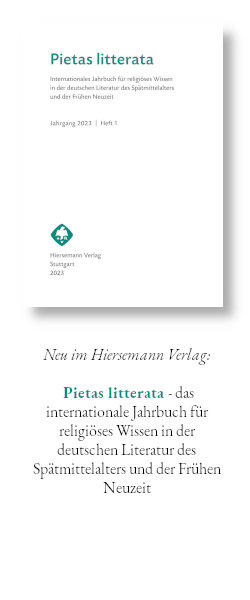Longing for Paradise in the Poetry of Peter Riga and Alexander Neckam
DOI:
https://doi.org/10.36191/mjb/2024-59-1-1Schlagworte:
Peter Riga, Alexander Neckam, locus amoenus, Garden of Eden, nostalgiaAbstract
The expulsion of mankind’s progenitors from Paradise is a dramatic event which thrusts humanity into torturous exile from the presence of God that is marked by perpetual longing for life’s lost happiness and continuous striving to achieve the ultimate goal of redemption and return to God’s glory. Paradise is a mystical place whose beauty and plenty medieval Christians try to describe in various genres of writing such as literal exegesis, allegorical interpretation, and poetic imagery. This article examines three poetic accounts of what God’s Garden might have looked like offered by Peter Riga (d. 1209), first, in the ›Floridus aspectus‹ and, later, in the ›Aurora‹, and by Alexander Neckam (d. 1219) in his ›Suppletio defectuum‹. These accounts represent a novel way of engaging with the classical topos of locus amoenus by using a typically thirteenth-century encyclopedic approach of describing the richness of creation, in which paradise takes a prime position not only because of its existence at the beginning of time, but also because it represents a lost state of innocence which humanity hopes to regain at the end of times. Thus, paradoxically the yearning for the lost paradise is longing for a future that is both predestined by the past and shaped by the present.


